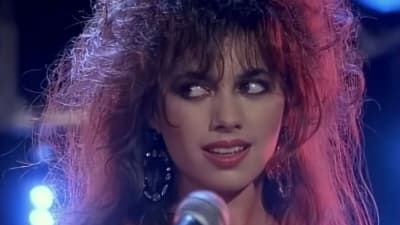
There’s winning an NBA title, and then there’s winning an NBA title with authority. While plenty of champions have managed to win seven-game series, only a select few have made the playoffs look like a scrimmage.
Since the NBA adopted the current playoff format, losing three games (or fewer) in a postseason run has been the mark of a truly elite team. Let’s take a look at the last 10 NBA champions who barely broke a sweat on their way to hoisting the Larry O’Brien trophy.
1. 2023-24 Boston Celtics - 16-3 (.842)
Playoff Stats: FG%: 46.9, 3P%: 36.0, FT%: 81.2, Reb: 43.1, Ast: 23.8, Stl: 6.3, Blk: 5.4, PTS: 108.8, Opp PTS: 100.7
The 2024 Celtics were a machine of two-way dominance, storming through the Eastern Conference as the No. 1 seed and finally putting an end to their championship drought. Led by Jayson Tatum and Finals MVP Jaylen Brown, Boston boasted elite perimeter defense and timely shot-making, smothering teams on one end while lighting them up from deep.
Their 16-3 record was built on depth, versatility, and an unwavering commitment to team-first basketball. It wasn’t always pretty, but they got the job done—securing Banner 18 and reminding the league that Boston basketball is alive and well as they look to secure #19 as well.
2. 2016-17 Golden State Warriors - 16-1 (.941)
Playoff Stats: FG%: 49.4, 3P%: 38.6, FT%: 81.5, Reb: 45.8, Ast: 28.2, Stl: 8.7, Blk: 6.1, PTS: 119.3, Opp PTS: 105.8
The greatest playoff run of the modern era? You’d be hard-pressed to find a better case than the 2017 Warriors. This was peak Golden State—Steph Curry, Klay Thompson, and Draymond Green, now supercharged with the addition of Kevin Durant. They breezed through the postseason, dropping just one game in the NBA Finals.
Their offensive efficiency was off the charts, their defense was suffocating when needed, and their ball movement was poetry in motion. This was basketball at its highest form, and quite frankly, the league had no answer.
3. 2000-01 Los Angeles Lakers - 15-1 (.938)
Playoff Stats: FG%: 46.8, 3P%: 38.6, FT%: 67.6, Reb: 48.2, Ast: 22.8, Stl: 9.2, Blk: 5.8, PTS: 103.4, Opp PTS: 90.6
Dominance. That’s the only way to describe the Lakers’ 2001 playoff run. Shaquille O’Neal was an unstoppable force, bulldozing through defenses while Kobe Bryant solidified himself as the game’s next superstar.
The Lakers steamrolled through the Western Conference with a perfect 11-0 record, only dropping Game 1 of the Finals to Allen Iverson and the 76ers before finishing the job. Their defense was physical, their offense was relentless, and their confidence was off the charts. This was Shaq and Kobe at their absolute best, and the league never stood a chance.
4. 1998-99 San Antonio Spurs - 15-2 (.882)
Playoff Stats: FG%: 45.1, 3P%: 35.0, FT%: 74.2, Reb: 40.2, Ast: 21.3, Stl: 7.3, Blk: 5.8, PTS: 88.4, Opp PTS: 81.2
The beginning of a dynasty. The 1999 Spurs, in a lockout-shortened season, introduced the world to Tim Duncan and the new era of San Antonio basketball. With Duncan and David Robinson controlling the paint, the Spurs’ suffocating defense carried them through the postseason.
They held opponents to just 81.2 points per game—a testament to Gregg Popovich’s defensive schemes. It wasn’t flashy, but it was efficient, disciplined, and overwhelming. This championship run set the foundation for two decades of dominance.
5. 1995-96 Chicago Bulls - 15-3 (.833)
Playoff Stats: FG%: 44.3, 3P%: 30.6, FT%: 73.8, Reb: 43.6, Ast: 22.7, Stl: 9.5, Blk: 3.9, PTS: 97.4, Opp PTS: 86.8
72-10 in the regular season. 15-3 in the playoffs. The ‘96 Bulls were an all-time juggernaut, fueled by Michael Jordan’s return to peak form and Scottie Pippen’s all-around brilliance. Their defense was a nightmare for opponents, with Dennis Rodman wreaking havoc on the boards and Ron Harper disrupting backcourts.
They made quick work of the Eastern Conference before handling Seattle in the Finals. This was basketball excellence, pure and simple, and they are widely regarded as the single greatest team of all time for how they manhandled the opposition.
6. 1990-91 Chicago Bulls - 15-2 (.882)
Playoff Stats: FG%: 51.4, 3P%: 32.6, FT%: 76.3, Reb: 40.2, Ast: 25.5, Stl: 9.5, Blk: 4.5, PTS: 103.9, Opp PTS: 92.2
The birth of the Bulls dynasty. Michael Jordan had flirted with greatness before, but this was the year he fully took the throne. Chicago blitzed through the playoffs, playing fast, efficient basketball under Phil Jackson’s triangle offense.
Jordan and Pippen overwhelmed teams with their athleticism, and the Bulls capped their run by dismantling Magic Johnson’s Lakers. This was MJ’s first ring, and the rest of the league would suffer for years to come.
7. 1988-89 Detroit Pistons - 15-2 (.882)
Playoff Stats: FG%: 47.3, 3P%: 29.6, FT%: 76.2, Reb: 44.2, Ast: 22.6, Stl: 4.9, Blk: 4.5, PTS: 100.6, Opp PTS: 92.9
The Bad Boys finally got their crown. After years of falling short, the 1989 Pistons left no doubt, destroying teams with their signature physicality and defensive intensity. Isiah Thomas was a maestro, Joe Dumars was clutch, and their deep roster wore opponents down.
They swept the Lakers in the Finals, officially ending the Showtime era and proving that defense, toughness, and grit could win championships. Dumars was named Finals MVP after averaging 27.3 points and 6.0 assists per game, and Isiah Thomas would capture that trophy the following season.
8. 1986-87 Los Angeles Lakers - 15-3 (.833)
Playoff Stats: FG%: 52.2, 3P%: 36.1, FT%: 78.5, Reb: 44.9, Ast: 28.3, Stl: 7.9, Blk: 6.4, PTS: 120.6, Opp PTS: 109.2
The 1986-87 Lakers were Showtime at its absolute peak. In his first MVP season, Magic Johnson took complete control of the team’s offense with his elite passing and clutch scoring. With Kareem Abdul-Jabbar still delivering in his late 30s, James Worthy flying down the wing, and Byron Scott and Michael Cooper spacing the floor, the Lakers ran teams out of the gym.
Pat Riley’s squad went 65-17 in the regular season, then turned it up another level in the playoffs. They tore through the West and met their eternal rivals, the Celtics, in the Finals, where Magic's iconic "junior skyhook" in Game 4 all but sealed the title.
9. 1985-86 Boston Celtics - 15-3 (.833)
Playoff Stats: FG%: 50.7, 3P%: 39.1, FT%: 79.4, Reb: 45.2, Ast: 28.6, Stl: 9.0, Blk: 6.1, PTS: 114.4, Opp PTS: 104.1
Larry Bird has called the 1985-86 Boston Celtics the best team he ever played on, and it's easy to see why. This squad had everything—elite talent, veteran leadership, and the perfect balance of skill and toughness. Bird was at the height of his powers, winning his third straight MVP (25.8 PPG, 9.8 RPG, 6.8 APG) while running the show with his signature swagger and brilliance in the Finals to win Finals MVP as well (24.0 PPG, 9.7 RPG, 9.5 APG).
Kevin McHale and Robert Parish dominated the paint, Dennis Johnson provided backcourt stability, and Bill Walton, finally healthy, came off the bench to provide one of the most impactful sixth-man performances in NBA history.
They cruised through the playoffs, capping off their run with a convincing Finals victory over the Houston Rockets. Boston Garden was a fortress that season, as the Celtics went an astounding 40-1 at home. This was the last great Celtics championship team of the Bird era, and it remains one of the most complete teams in NBA history.
10. 1982-83 Philadelphia 76ers - 12-1 (.923)
Playoff Stats: FG%: 49.4, 3P%: 10.0, FT%: 72.2, Reb: 44.9, Ast: 24.2, Stl: 9.3, Blk: 6.8, PTS: 105.8, Opp PTS: 99.3
Few teams in NBA history have dominated a postseason quite like the 1982-83 Philadelphia 76ers. After years of coming up short in the Finals, Philly finally got over the hump thanks to the addition of Moses Malone, the league’s most dominant center at the time. Malone famously predicted "Fo', Fo', Fo'," meaning the Sixers would sweep every round of the playoffs.
He was almost right—Philadelphia lost just once on their way to a 12-1 record, steamrolling the Lakers in the Finals. Malone was an unstoppable force, bullying teams inside and winning Finals MVP (25.8 PPG, 18.0 RPG, 1.5 BPG), while Julius Erving (19.0 PG, 8.5 RPG) provided the perfect blend of athleticism, leadership, and highlight-reel plays.
More must-reads:
- Three stars from Sunday's NBA playoffs
- Report: Kevin Durant has mutual interest with one new team
- The 'Most 30-point NBA playoff games before age 22' quiz
Customize Your Newsletter
 +
+
Get the latest news and rumors, customized to your favorite sports and teams. Emailed daily. Always free!








